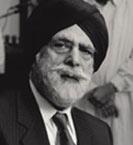Last week we were celebrating the 25th anniversary of the fall of the Berlin wall; a physical structure designed to keep the people of Eastern Europe isolated from the freedom and democratic values of the West.
This week is inter-faith week; a week in which we question equally divisive, barriers of belief between religions. Barriers built on claims of exclusivity and superiority seen in the use of language to denigrate those of other beliefs or ways of life. Today, we are all too aware of the way in which words can be used to promote active hatred and the mindless killing of thousands of innocents, as seen in the Middle East and many other parts of our world.
In the past, talking about distant religions in a disparaging way, though wrong, was fairly harmless and gave us a perverse sense of unity based on the superiority of our way of life over that of others. Today such thinking is food and sustenance for the fanatic. In our smaller and interdependent world, recognising that, that we are all equal members of one human family has now become an imperative.
Sikh teachings remind us that our different religions are different paths to responsible living and must all be respected. Religious teachings are not mutually exclusive and frequently merge in shared truths and a heightened understanding of our own faith
A popular Christian hymn states:
To all life Thou givest; to both great and small
In all life Thou livest the true life of all
The lines have a striking parallel in Sikh scriptures
There is an inner light in all
And that light is God
The Sikh Gurus frequently used parallel teachings in different faiths to emphasise important commonalities and shared values.
Today religion finds itself confined to the margin of society as a cause rather than a cure for hatred and violence. We see this in governments focussing huge resources on programmes to combat religious extremism. And yet…… if religions work together to live common core teachings of right, wrong and responsibility, who knows? Instead of programmes like ‘Prevent’, we might even have government programmes called ‘Enable’ to embed these values in daily living as the founders of our faiths intended. Not easy, but events like inter-faith week are at least a step in the right direction.


